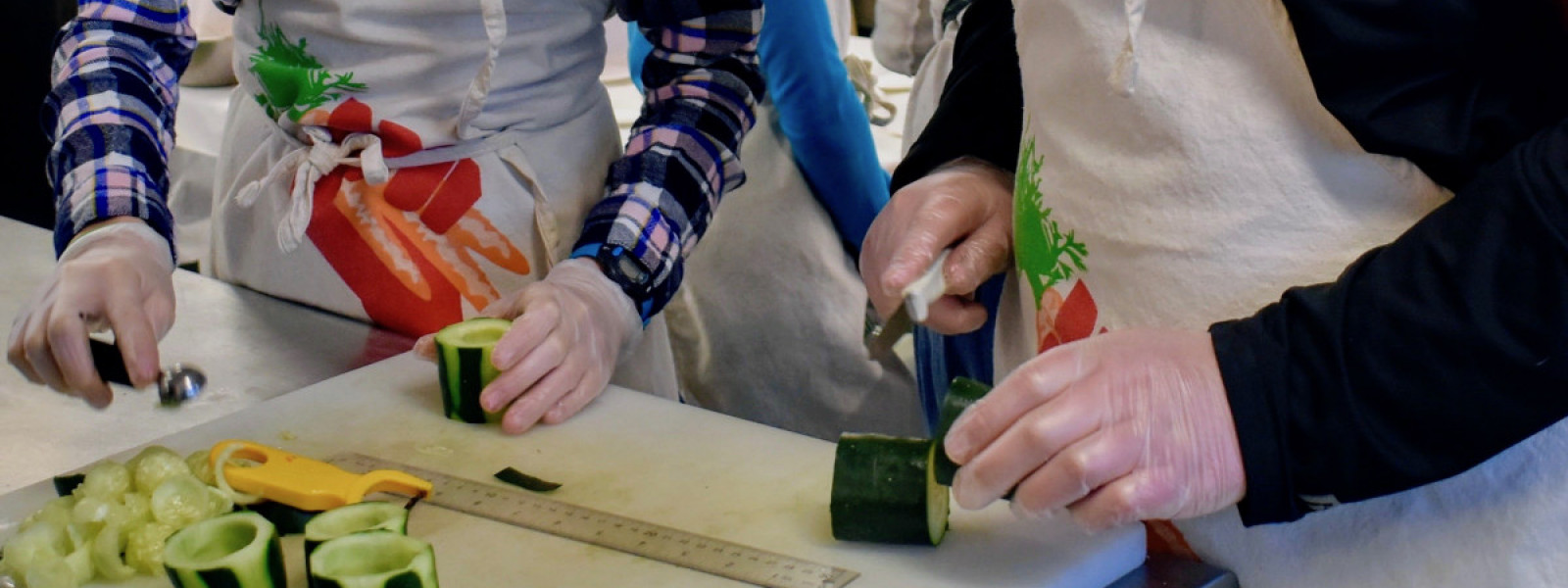Cooking Up More Than Healthy Habits
One of my favorite moments from cooking with middle schoolers at an organization in Seattle was when my group of four youth seemed to be rushing through the recipe. They announced “We’re done!” when they had finished the last task on the steps of the recipe.
“Did you taste it?” I asked them. They looked at each other and at the unused tasting spoons in front of them. I reminded them that all chefs taste as they go and that it’s not the end product that is the most rewarding (although that part is very yummy) but it’s the entire process along the way that makes their food delicious.
So much of the education system is focused on the end result—grades, tests, graduations, and it becomes more and more rare that we slow down and savor the process. The students each took a tasting spoon and dipped it into the sauce they were making. They wore thoughtful expressions and began discussing what was missing. Within minutes, a pinch of salt was being added here, a squeeze of lime juice there, tasting as they went until the whole group agreed that not a thing was missing and that their spring roll dipping sauce was perfect.
While a lot of the focus of cooking with young people is on nutrition and encouraging healthy snack choices to directly address our nation’s obesity epidemic, I believe that is only the tip of the iceberg when it comes to the benefits. According to a study published in the Journal of Hunger and Environmental Nutrition, youth engaged in cooking their own meals and snacks are accomplishing much more than learning good nutrition. They are honing their math skills while interpreting a recipe and practicing positive communication as they move through the kitchen with a hot pan, much the way a professional chef would. They are thinking critically about what effects adding certain ingredients would have to the dish and are beginning to recognize fresh food and flavors they might never have encountered. The autonomy gained through being empowered in the kitchen and seeing a meal from start to finish (sometimes this even means involvement from the very start: planting a seed) from scratch allows youth to be in relationship with their food and to develop greater confidence both in and out of the kitchen.
Additionally, cooking with youth is an opportunity to access other cultures that they might not encounter in their daily lives. Appreciating diversity in their cuisine can lead to appreciating diversity in all aspects of their lives. The one commonality we share with all people—all living beings, really—is that we must eat food! While one student shares that they make tamales with their grandmother, another student has a similar experience making matzo ball soup with their uncle. Expanding one’s palate is never a bad thing and can only lead to an expanding of one’s world view as well.
We offer several sessions of our Cooking for Middle Schoolers program at the farm throughout the year. Click here for information about the next session.
Resources:
Jennifer Utter, Anna P. Fay & Simon Denny (2017) Child and Youth Cooking Programs: More Than Good Nutrition?, Journal of Hunger & Environmental Nutrition, 12:4, 554-580.







